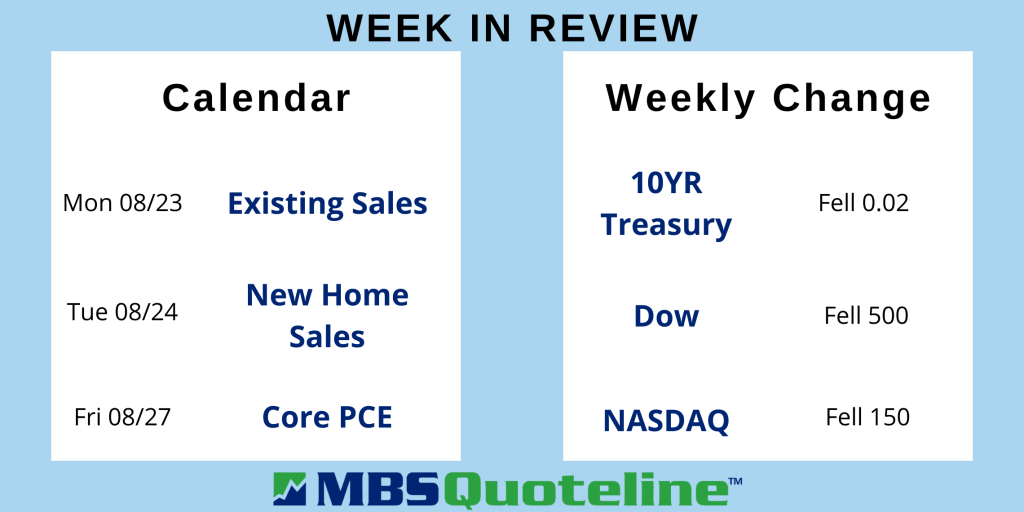While significant economic news came out this week, retail sales dropped. In spite of this, the travel and entertainment industries saw a major a boom.
Overall, investors did not change their outlook for economic growth nor future Fed policy. As a result, mortgage rates ended the week nearly flat.
Retail Sales Dropped
Consumer spending accounts for over two-thirds of U.S. economic activity. Thus, retail sales data represents a key growth indicator. In July 2021, retail sales dropped 1.1% from June. Statistically, retail sales fell far below the consensus forecast for a decline of just 0.3%.
Investors grow increasingly concerned about the effect of the spread of COVID-19 on consumer behavior. Conclusively, the latest retail sales report suggests that the impact may be larger than expected.
Travel & Entertainment Saw a Boom as Retail Sales Dropped
On the other hand, retail sales remain 16% higher than a year ago. Also, retail sales hover well above the levels seen before the pandemic.
Although retail sales dropped, consumers shifted their spending habits in a new direction. While retail sales primarily accounts for “goods”, consumers moved towards services. The service sector includes travel and entertainment. Both industries experience a resurgence after 2020 hit them hard.
Alongside the consumer spending shift, another factor dominates the redirection. The auto sector faces a new vehicle shortage. As previously discussed in MortgageTime, a lack of chips and other components held back production of new vehicles. Thus, auto sales deal more with limited supply, than a lack of demand.
Mixed News for Housing Starts
Aside from retail sales dropping, housing starts saw mixed news. Given the critical need for more homes, investors closely watched the monthly reports on housing starts. However, the latest data contained mixed news. In July 2021, housing starts fell 7% from June. That said, housing starts remained higher than a year ago.
By contrast, building permits increased 3%. Building permits indicate future housing activity. Rising prices and shortages for land, materials, and skilled labor present obstacles to faster construction.
Fed Close to Hitting Employment Goals
Although retail sales dropped, the Fed meeting on July 28th Fed meeting contained no significant surprises. According to the minutes, the Fed’s inflation goals had been achieved. Officials are “close to being satisfied” with their employment goals.
The minutes repeated the belief that elevated levels of inflation will be mostly transitory. However, they also noted that risks remained.
Now, investors expect the Fed to make an announcement at the September meeting. In terms of content, investors anticipate the Fed will begin to taper bond purchases during the fourth quarter. But the looming coronavirus pandemic (and its impact) remains the biggest wild card for the timeline.
Looking Ahead After Retail Sales Dropped
After retail sales dropped, investors closely watch global COVID-19 case counts. They also look for hints from Fed officials about the timing for changes in monetary policy.
Beyond that, Existing Home Sales releases on Monday. New Home Sales comes out on Tuesday.
Friday represents a big day for both core PCE price index and Personal Income. The Fed favors the core PCE price index as their go-to inflation indicator.
Want to see how mortgage-backed securities are affected as retail sales dropped? Never miss an update with MBSQuoteline. To receive by-the-minute updates on mortgage-backed securities, try our platform free for 14 days.

Stay connected with MBSQuoteline on social media by following us on Facebook, Twitter, and LinkedIn.
All material Copyright © Ress No. 1, LTD (DBA MBSQuoteline) and may not be reproduced without permission. To learn more about the MortgageTime™ newsletter, please contact MBSQuoteline at 800.627.1077 or info@mbsquoteline.com.

